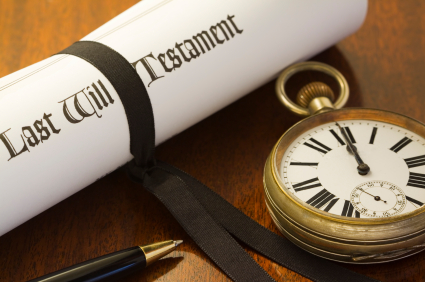We all know we need to plan ahead for a time when we won’t be able to speak for ourselves. A crisis can occur at any time, regardless of age or current health. Sadly, it can happen in the blink of an eye. In my career of handling estates, I have seen young clients pass away suddenly, as well as crisis situations occur with our elderly loved ones who fall, have a stroke, or can no longer care for themselves. So much can happen; if we are honest, we simply choose not to seriously think about these issues until they are upon us. Sometimes, that is too late.

Have you thought ahead to make a plan for your cherished possessions, or at least gift them prior to passing away? I encourage everyone to make a plan and put it in a legal document. Write an addendum to your Will, or place certain items in a Trust if they are special to you. An estate planning attorney can help you put these documents together fairly quickly. Put these documents in a safe place, discussing the contents with the executor. The attorney will keep a copy. Let a close, trusted friend know what you are doing and where the originals are kept.
Things to think about:
- Plan for special possessions. It is not realistic to think our kids will want all of our possessions. First, find out what they would like to have, then have those items appraised for fair market value. Create a “wish list” and keep it equitable; leave guidance on who gets what. It’s all spelled out in my book, “The Boomer Burden”, available at online booksellers.
- Plan for your animals should you pre-decease them. We adore our furry and feathered family but rarely do we make a plan for them. This leaves them in limbo. It’s not fair to them or the loved ones left behind to make painful decisions.
- Consider gifting while living. This minimizes future feuding and cuts down on challenging issues when the children/heirs have to divide the estate. Seeing the joy on the recipient’s face is an added bonus!
- Make sure someone knows the location of all private files, passwords, keys, titles, deeds, safe deposit boxes, safe combination. This information should be entrusted to your executor (someone you trust implicitly). Note: Multiple executors can often mean more complications and differences of opinions!
I have clients right now who put together a “master binder” of all the things we are discussing here, including written directions on where private documents can be found, such as social security card, Medicare information, life insurance policy, original Will/Trust, etc. They prepaid their own funerals. They asked me to write current appraisals for their furnishings, collectibles, and jewelry, and have made copies for each child. They were even nice enough to direct their children to me when they pass away, to handle the contents of their home, since all their heirs are long distance. Quite literally, they left a “Guidance System” for their children. How wonderful!
Think ahead to special possessions you have received and collected over your life. While no one can make plans for everything in their home, make plans for these valuable items now so no one can feud over them later. When the decision is made ahead of time, you’ve simplified the life of your executor.
©2016 The Estate Lady®
Julie Hall, The Estate Lady®, is the foremost national expert on personal property in estates, including liquidating, advising, and appraising. http://www.TheEstateLady.com She is also the Director of American Society of Estate Liquidators®, the national educational and resource organization for estate liquidation. http://www.aselonline.com.
No part of The Estate Lady® blogs, whole or partial, may be used without Julie Hall’s written consent. Email her at julie@theestatelady.com.


